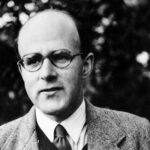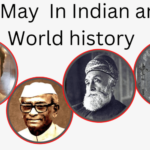The National Day of the Czech Republic is celebrated on October 28th each year. This day commemorates the establishment of Czechoslovakia in 1918, following the disintegration of the Austro-Hungarian Empire after World War I. The creation of Czechoslovakia marked a significant event in the country’s history, as it brought together the Czechs and Slovaks under one independent state. On this day, various celebrations, events, and ceremonies are held across the Czech Republic to honor its rich cultural heritage and the achievements of its people.
The Czech Republic, also known as Czechia, is a landlocked country in Central Europe. Historically known as Bohemia, it is bordered by Austria to the south, Germany to the west, Poland to the northeast, and Slovakia to the southeast
The traditional English name “Bohemia” derives from Latin: Boiohaemum, which means “home of the Boii” (a Gallic tribe). The current English name ultimately comes from the Czech word Čech. The name comes from the Slavic tribe (Czech: Češi, Čechové) and, according to legend, their leader Čech, who brought them to Bohemia, to settle on Říp Mountain.
History of Czech Republic National Day
The history of Czech Republic National Day is quite fascinating. It goes back to the year 1918, when Czechoslovakia was created as a new independent state after the collapse of the Austro-Hungarian Empire.
Czechoslovakia was composed of two main regions: Bohemia and Moravia, which are now part of the Czech Republic, and Slovakia, which is now a separate country. The Czechs and Slovaks had different languages, cultures, and histories, but they shared a common desire for freedom and democracy.
The Czechoslovak National Council, led by Tomáš Garrigue Masaryk, declared the independence of Czechoslovakia on October 28, 1918, in Prague. Masaryk became the first president of the new republic, which was recognized by the Allies and the defeated Central Powers12
The Czechoslovak Republic was one of the most prosperous and democratic countries in Central and Eastern Europe between the two world wars. It had a strong economy, a vibrant culture, and a stable political system. However, it also faced many challenges, such as ethnic tensions, border disputes, and the rise of fascism and communism.
In 1938, Nazi Germany annexed the Sudetenland, a region with a large German-speaking population in western Czechoslovakia. The following year, Germany occupied the rest of Bohemia and Moravia, while Slovakia became a puppet state under Nazi influence. The Czechoslovak government went into exile in London and continued to resist the Nazi occupation.
After World War II, Czechoslovakia was restored to its pre-war borders and became a member of the United Nations. However, it soon fell under the influence of the Soviet Union and became a communist dictatorship. The communist regime suppressed human rights, censored the media, and persecuted dissidents. In 1968, a reform movement known as the Prague Spring attempted to introduce “socialism with a human face”, but it was crushed by a Soviet-led invasion.
In 1989, a peaceful revolution known as the Velvet Revolution ended the communist rule in Czechoslovakia. The country held its first free elections since 1946 and elected Václav Havel as president. Havel was a former dissident and playwright who had been imprisoned by the communists for his activism. He became a symbol of hope and change for the Czechoslovak people.
However, the transition to democracy also revealed the differences between the Czechs and Slovaks. The two nations had different visions for their future, especially regarding economic and political integration with Europe. In 1992, they agreed to peacefully split into two independent states: the Czech Republic and Slovakia. The dissolution took effect on January 1, 1993.
Since then, both countries have developed into successful democracies and members of NATO and the European Union. They have maintained friendly relations and cooperation on various issues. They also continue to celebrate October 28 as their national day, honoring their common history and heritage as Czechoslovaks.
Significance of Czech Republic National Day
The significance of Czech Republic National Day is that it celebrates the creation of the first independent Czechoslovak state in 1918, after the collapse of the Austro-Hungarian Empire. This day is important for the Czech people because it symbolizes their struggle for freedom and democracy, as well as their common history and heritage with Slovakia.
The Czech Republic National Day is a public holiday and a day of national pride and celebration. It is marked by various cultural events, parades, and fireworks. The president also awards state honors to deserving citizens for their contributions to the country. The Czech Republic National Day is a reminder of the achievements and challenges of the Czech nation, as well as its values and aspirations. It is a day to honor the past, celebrate the present, and look forward to the future.
Events at Czech Republic National Day
There are many events that take place on the Czech Republic National Day, which is also the anniversary of the founding of Czechoslovakia in 1918. Some of the events are:
- A military parade and an air show in Prague, featuring the Czech Army, Police, Firefighters, and other security forces. The parade also honors the veterans and heroes of the Czech nation.
- A wreath-laying ceremony at the statue of St. Wenceslas, the patron saint of the Czech Republic, in Wenceslas Square. The president and other dignitaries attend this ceremony and award state honors to deserving citizens
- A pilgrimage to Brandýs nad Labem-Stará Boleslav, where St. Wenceslas was murdered by his brother in 935. Thousands of people join this pilgrimage and pay tribute to the saint and martyr.
- Various cultural events, concerts, exhibitions, and festivals across the country, showcasing the rich and diverse heritage of the Czech people. Some of the popular events are the Prague Spring Festival, the Bohemia Jazz Fest, and the International Film Festival Karlovy Vary.
- A spectacular fireworks display over the Vltava River in Prague, which lights up the sky and the historical landmarks of the city. The fireworks are accompanied by music and narration that tell the story of the Czech nation.
These are some of the events that celebrate the Czech Republic National Day and its significance for the Czech people.
Tags: Czech Republic holidays Czech Republic National Day, Czech Republic National Day, Details of Czech Republic National Day, Events at Czech Republic National Day, FAQ on Czech Republic National Day, History of Czech Republic National Day, national days october 28, october 28 national day, Significance of Czech Republic National Day











